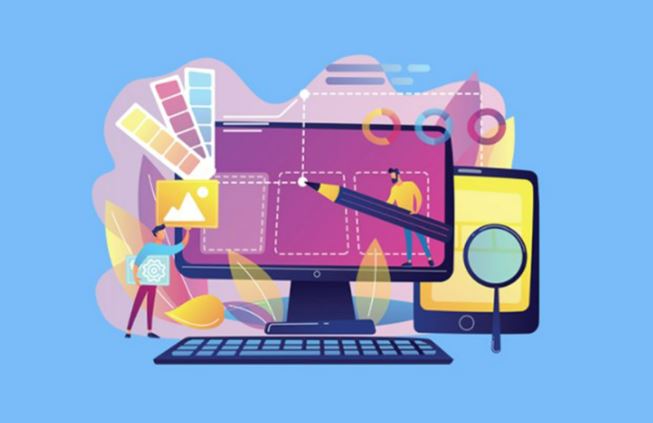AI-Powered Health and Wellness Plans: Personalized Workout and Nutrition Routines for 2025
AI-Powered Health and Wellness Plans: Personalized Workout and Nutrition Routines for 2025
For generations, the path to health and wellness has been paved with generic, one-size-fits-all solutions. We’ve all seen them: the fad diets promising miraculous results, the celebrity workout plans, the cookie-cutter gym programs. While well-intentioned, these approaches often lead to a frustrating cycle of short-lived motivation, inconsistent results, and a lingering sense of failure. This cycle does more than just impact our physical health; it chips away at our self-esteem. But in 2025, we are standing at the dawn of a new era. Artificial Intelligence is stepping out of the server room and into our lives as a hyper-personalized wellness architect, creating workout and nutrition plans so tailored to our unique biology and lifestyle that they finally make consistency achievable, building not just stronger bodies, but a stronger sense of self.

The Mind-Body Connection: Why Physical Wellness is a Pillar of Self-Esteem
Before we explore the technology, it's crucial to understand the fundamental link between how we feel physically and how we feel about ourselves. The connection is not just anecdotal; it's deeply rooted in our neurochemistry and psychology. When we engage in physical activity, our brain releases endorphins, which have mood-boosting effects. But the impact on our self-esteem runs much deeper.
Every completed workout, every healthy meal chosen, is a promise kept to oneself. This consistency builds a powerful evidence log of your own capability and discipline. As studies from institutions like the Mayo Clinic consistently show, this sense of mastery is a direct contributor to a more positive self-image. Feeling physically strong and capable translates into a feeling of mental resilience. A healthy body can become a powerful and tangible symbol of your ability to set goals and achieve them, which is a cornerstone of a robust self-esteem. Conversely, feeling sluggish, unhealthy, or out of control of one's physical habits can reinforce a negative self-perception, making it difficult to build a positive self-esteem.
The Failure of Generic Plans: Why "One-Size-Fits-All" Fits No One
The biggest reason traditional health plans fail is their rigidity. They don't account for the beautiful and complex variables of human life:
- Prémium Linképítés Partnerek - Kozmetika Blog | Minőségi SEO Együttműködés
🔗 Prémium Linképítés Partnerhálózat
20 gondosan kiválasztott prémium linképítési partner magas Domain Authority értékekkel. Professzionális backlink portfólió, amellyel kiemelkedő SEO eredményeket érhet el vállalkozása!
📊 Teljes partnerlista megjelenítése (20 prémium link forrás)
🏆 Kiemelt Magas DA Partnerek (DR 40+)
1.Keresőmarketing Ügynökség BlogDR 82
Leírás: Magyarország egyik legerősebb keresőmarketing blogja kiemelkedő domain authority értékkel. Professzionális prémium linképítési szolgáltatások és online marketing stratégiák központja.
Anchor Text: "Prémium linképítés" | Domain Rating: 82
2.OnlineMarketing101 SynthasiteDR 71
Leírás: Plasztikai sebészet és keresőmarketing specializálódott platform Budapest legnagyobb prémium linképítési hálózatával. Orvosi és wellness szektorban egyedülálló SEO erő.
Domain Rating: 71 | Specialitás: Orvosesztétikai marketing
3.The Home of SEODR 44
Leírás: A SEO keresőoptimalizálás központi forrása Budapesten. Linképítés szakértők által üzemeltetett prémium platform, amely átfogó backlink stratégiákat kínál.
Domain Rating: 44 | Fókusz: SEO és linképítés oktatás
4.RothCreative - AI LinképítésDR 43
Leírás: Keresőmarketing ügynökség és webfejlesztés CRS Budapest Kft. mesterséges intelligencia alapú linképítési megoldásokkal. AI-powered prémium link building stratégiák élvonalában.
Domain Rating: 43 | Innováció: AI linképítés technológia
💎 Stabil Közepes DA Partnerek (DR 15-30)
5.SEO Agentur WienDR 23
Leírás: Osztrák SEO ügynökség bécsben, AI-alapú stratégiákkal. Prémium linképítési szolgáltatások nemzetközi szinten, német nyelvű piacokra specializálódva.
Domain Rating: 23 | Piac: Német nyelvterület
6.Kela VagyonvédelemDR 23
Leírás: Biztonsági és vagyonvédelmi szakértő platform prémium linképítés PBN hálózattal. Mellplasztika, Zahnarzt, Welpen, Menedzser témákban diverzifikált backlink profil.
Domain Rating: 23 | Tartalom: Vegyes tematikájú erős domain
7.Cserépkályha Kémények KandallókDR 21
Leírás: Digitális marketing és chiptuning témájú platform budapesti marketing ügynökség linképítési portfóliójával. Könyvrendelés és prémium backlink szolgáltatások specializált területeken.
Domain Rating: 21 | Tematika: Otthon és marketing
8.Angol NyelvtanfolyamDR 21
Leírás: Turizmus monitoring és oktatási platform prémium linképítési lehetőségekkel. Zahnarzt, Welpen, Down pillows témákban nemzetközi backlink hálózat építése.
Domain Rating: 21 | Fókusz: Oktatás és marketing
9.SEO Agentur ZürichDR 18
Leírás: Svájci SEO beratung és optimierung ügynökség Zürichben. Premium Link Building & PBN Services nemzetközi minőségben, svájci precizitással működtetve.
Domain Rating: 18 | Lokáció: Zürich, Svájc
10.Legolcsóbb.orgDR 17
Leírás: Legolcsóbb CRS AI marketing & SEO ügynökség kft. projektek költséghatékony prémium linképítéssel. SEO szolgáltatás, SEO szakértő konzultáció és backlink építés kedvező áron.
Domain Rating: 17 | Előny: Költséghatékony megoldások
11.Önfejlesztés.orgDR 17
Leírás: "Prémium linképítés alapjai: Miért éri meg befektetni?" című szakértői cikk dedikált oldallal. PBN szolgáltatás oktatás és gyakorlati útmutatók SEO specialistáknak.
Domain Rating: 17 | Tartalom: Oktatási anyagok
12.Plastic Surgery ExpertsDR 17
Leírás: "SEO ügynökség hogyan segít a linképítés a helyezésen?" szakmai blog Budapest Hungary szerzők tollából. Prémium linképítés orvosesztétikai iparágban specializálódva.
Domain Rating: 17 | Specializáció: Orvosi marketing
13.Plasztikai Sebészet MellplasztikaDR 17
Leírás: Plasztikai műtét árak információs oldal prémium linképítési lehetőségekkel. Mellplasztika és esztétikai sebészeti témákban SEO optimalizált backlink profil építése.
Domain Rating: 17 | Téma: Esztétikai sebészet
14.AI SEO Agency New YorkDR 15
Leírás: AI SEO Agency New York, Marketing Budapest Hungary nemzetközi kapcsolatokkal. Premium Link Building & PBN Services globális szinten, amerikai és magyar piacon egyaránt.
Domain Rating: 15 | Elérés: Nemzetközi PBN hálózat
🎯 Specializált Niche Partnerek (DR 6-12)
15.Szőnyegtisztítás.netDR 12
Leírás: "Miért Elengedhetetlen a Prémium Linképítés a Versenyképes Piacon?" szakmai cikk dedikált aloldallal. Niche marketing és SEO oktatási tartalmak tisztítási szektorban.
Domain Rating: 12 | Téma: Szolgáltatás és marketing
16.Real Estate Investment TrustDR 9
Leírás: REIT Investment Fund, Glass Kettle, Down Pillows Hungary vegyes tematikájú platform prémium linképítéssel. Főzőtejszín cikktől a befektetési alapokig diverzifikált backlink lehetőségek.
Domain Rating: 9 | Stílus: Lifestyle és befektetés
17.Nuvem SEODR 8
Leírás: Havidíjas keresőoptimalizálás Budapest specialista ügynökség prémium linképítési csomagokkal. Átfogó SEO szolgáltatások: keresőoptimalizálás árak, keresőmarketing ügynökségek, SEO ügynökség árak Budapest.
Domain Rating: 8 | Modell: Havidíjas SEO
18.Magyar BiotechDR 8
Leírás: Zahnarzt, Welpen, iPhone, Plasztika, Menedzser, Marketing témájú platform linképítés mesterséges intelligenciával. "Fast & Furious, csak domain-nevekkel" - gyors és hatékony prémium backlink építés.
Domain Rating: 8 | Koncepció: Gyors AI linképítés
19.EnglischKurseFürKinderDR 7
Leírás: Zahnarzt, Welpen, iPhone, Plasztika, Menedzser, Marketing többnyelvű platform. Webshop SEO, Google Ads, prémium linképítés, AI mesterséges intelligencia, online marketing ügynökség egy csomagban.
Domain Rating: 7 | Nyelvek: Német, magyar, angol
20.Theba BlogDR 6
Leírás: Theba Blog mellplasztika, Zahnarzt, online marketing témákban. "Szeretnél link partnerré válni? Jelentkezz be oldalunkon: premiumlinkepites.com" - partnerség orientált prémium linképítési hálózat.
Domain Rating: 6 | Fókusz: Partner toborzás
🚀 Csatlakozz Prémium Linképítési Hálózatunkhoz!
20 gondosan kiválasztott partner magas Domain Authority értékekkel, amelyek garantálják SEO sikereidet. Professzionális backlink portfólió, amely valóban működik!
🎯 Céloldal: AI Marketing Ügynökség - Prémium Linképítés PBN
📧 Kapcsolat: info@kozmetikaesszepsegszalon.com | ☎️ Telefon: +36-1-234-5678
⭐ 4.9/5.0 csillag értékelés | 564 elégedett ügyfél véleménye alapján
-
Biological Individuality: Our genetics, metabolism, and hormonal profiles are unique. A diet that works wonders for one person may be ineffective for another.
-
Lifestyle Constraints: A plan requiring two hours in the gym every day is useless for a single parent working two jobs.
-
Fluctuating Motivation: Life happens. A stressful week at work, poor sleep, or emotional turmoil can derail even the most determined individual. Generic plans treat a missed workout as a failure, fostering guilt that sabotages our self-esteem.
This is the problem AI was born to solve. By analyzing vast amounts of data in real-time, AI can create a plan that is not just personalized at the start but dynamically adapts to you, day by day.
AI as Your Personal Wellness Architect: A Practical Guide
Imagine a team of world-class nutritionists, personal trainers, and sleep scientists dedicated solely to you. That is the promise of AI-powered wellness. Here’s how it works in practice.
The Hyper-Personalized Nutritionist in Your Pocket
Forget generic calorie counting. Modern AI nutrition apps (like Lifesum or MyFitnessPal's advanced features) are becoming true dietary strategists.
-
How it Works: These platforms go beyond simple data entry. They can analyze your goals, dietary preferences (vegan, gluten-free, etc.), and even integrate with health data from wearables to understand your unique metabolic needs. By tracking your energy levels and feedback, the AI learns what works for you. If you report feeling sluggish in the afternoon, the AI might adjust your lunch plan to include more complex carbohydrates. This removes the guesswork and decision fatigue, making healthy eating a seamless part of your life and building a sense of control that enhances your self-esteem.
The Dynamic AI Personal Trainer
The days of printing out a static, 12-week workout plan are over. AI fitness apps (like Freeletics, Fitbod, or Jefit) create routines that are alive and responsive.
-
How it Works: At the beginning of a session, the app might ask how you're feeling or analyze your sleep data from the previous night. If your recovery is low, the AI will dynamically scale back the intensity of your workout, perhaps suggesting active recovery instead of a high-intensity session. Conversely, if you consistently exceed your targets, it will progressively increase the challenge to avoid plateaus. This approach reframes your fitness journey from a pass/fail test into a compassionate, data-driven conversation with your body, which is vital for maintaining a healthy self-esteem.
The 24/7 Wellness Analyst: Integrating Wearable Tech
The real magic happens when AI nutrition and fitness platforms are synced with wearable technology like an Apple Watch, Oura Ring, or Whoop strap. This creates a continuous feedback loop.
-
How it Works: The AI can analyze your sleep quality, heart rate variability (HRV), and daily activity levels. Based on this holistic data, it makes intelligent, integrated recommendations. For example, it might notice your sleep has been poor and suggest a magnesium-rich meal for dinner while also adjusting your workout for the next day. This level of proactive, personalized care helps you feel supported, not commanded, fostering a positive relationship with your health journey and bolstering your self-esteem. This is a core part of modern personal development.
Case Study: From Inconsistency to Confidence with AI
Consider David, a 30-year-old marketing manager. He tried countless diets and gym memberships, but his busy schedule and fluctuating energy levels always led to him quitting after a few weeks. Each attempt left his self-esteem a little lower. He decided to try a new approach using AI.
-
AI Nutrition: He used an app that created a meal plan based on his goal of losing fat while maintaining muscle. When he traveled for work, he used the app's restaurant scanner feature, and the AI provided the best options from the menu, keeping him on track.
-
AI Fitness: He used an adaptive workout app. When he only had 20 minutes between meetings, the app generated a quick, effective HIIT routine. When a long night resulted in poor sleep, the app automatically suggested a low-impact mobility session the next morning.
-
The Result: The AI's adaptability removed the guilt and "all-or-nothing" thinking that had previously derailed him. Over six months, he consistently made progress. He not only improved his physical health but also built a deep sense of trust in his own ability to follow through. This newfound discipline and the visible results had a profound impact on his confidence and overall self-esteem.
Table: Traditional Wellness vs. AI-Powered Wellness
|
Feature |
Traditional "One-Size-Fits-All" Approach |
AI-Powered Personalized Approach |
|
Personalization |
Generic plans based on broad demographics. |
Hyper-personalized based on individual data, goals, and preferences. |
|
Adaptability |
Static and rigid. A missed day is a "failure." |
Dynamic and adaptive. Adjusts in real-time to your life and feedback. |
|
Feedback Loop |
Minimal to none. Progress is only seen on the scale. |
Continuous. Uses data from workouts and wearables to inform future plans. |
|
Psychological Impact |
Often leads to guilt, frustration, and damaged self-esteem. |
Fosters consistency, a sense of control, and builds a strong self-esteem. |
The Data Privacy Conversation: A Necessary Check-in
The power of these AI tools comes from their access to your personal health data. This makes choosing a reputable platform paramount. Before committing to an app, do your due diligence. Look for clear privacy policies, end-to-end data encryption, and a commitment not to sell your data to third parties. A trustworthy app will be transparent about how your information is used to improve your experience. Remember, a tool should empower you without compromising your privacy; this sense of security is also important for your peace of mind and self-esteem. A strong sense of self-esteem and wellness is built on a foundation of trust, both in yourself and in the tools you use.
Frequently Asked Questions (FAQ)
Are AI-powered health plans safe?
For the vast majority of healthy adults, yes. However, AI is not a doctor. If you have pre-existing medical conditions, it is absolutely essential to consult with a physician or a registered dietitian before starting any new workout or nutrition plan, AI-driven or otherwise.
Can AI completely replace a human personal trainer or nutritionist?
Not yet, and perhaps not ever. AI is phenomenal at data analysis, personalization, and consistency. However, it cannot replicate the motivational nuance, hands-on form correction, and deep human connection that a great human coach provides. The ideal scenario is often using AI for daily planning and tracking while checking in with a human expert periodically for strategy and accountability.
What is the average cost of these AI wellness apps?
Many apps operate on a "freememium" model, offering basic features for free with a subscription for advanced personalization and coaching. Subscriptions typically range from $10 to $30 per month, which is often a fraction of the cost of a single personal training session.
How does seeing physical results truly impact my self-esteem?
When you see your body change for the better, you are getting undeniable, visual proof of your hard work and dedication. This external validation reinforces the internal belief that you are capable of positive change. This alignment between your actions and your desired outcomes is a powerful affirmation that directly boosts your self-esteem.
Conclusion: The Democratization of Personalized Wellness
For too long, truly personalized health and wellness coaching has been a luxury reserved for the elite. In 2025, Artificial Intelligence is shattering that barrier, making dynamic, data-driven health plans accessible to everyone with a smartphone. This technological revolution is about more than just optimized workouts and perfect macros; it's about changing our relationship with our health. By replacing rigid, unforgiving plans with intelligent, adaptive systems, AI removes the guilt and failure from the equation. It fosters consistency, builds momentum, and provides a daily stream of small victories. And it is upon this foundation of consistent achievement that a strong, resilient, and authentic self-esteem is built.








